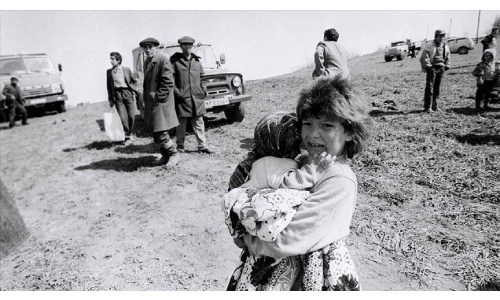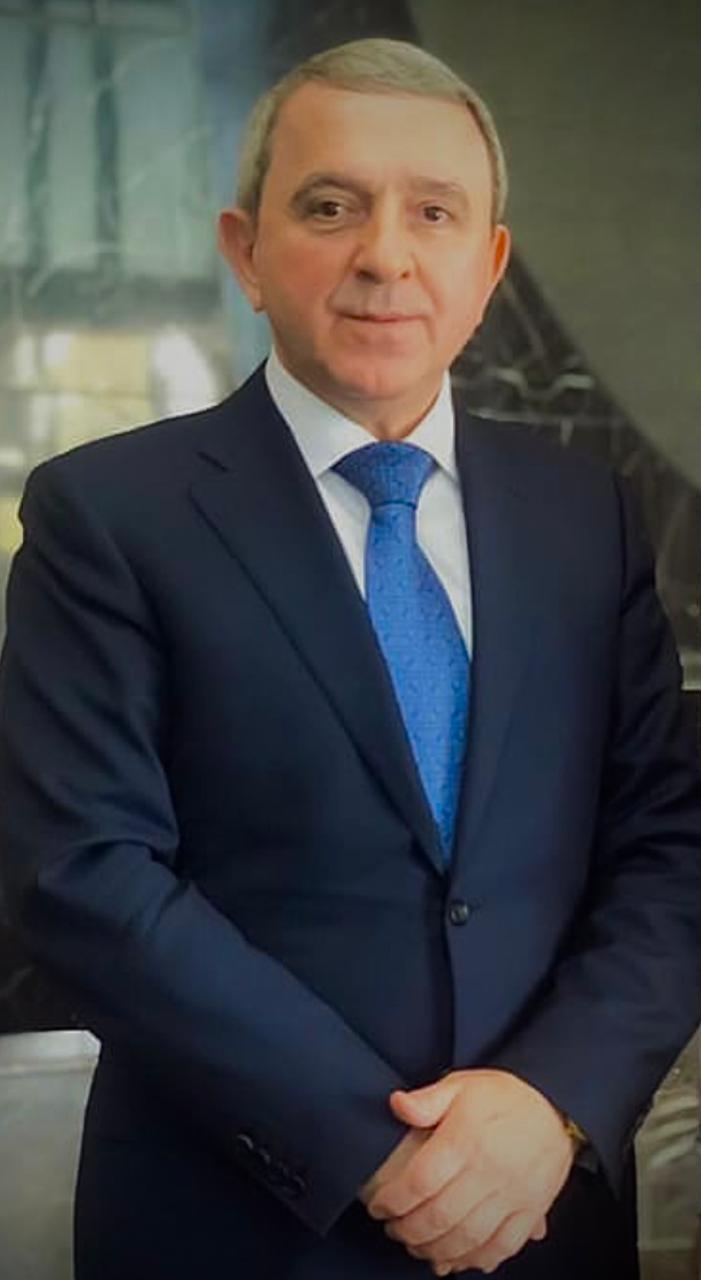A Crime against Humanity: The Khojaly Genocide
By Shahin Abdullayev
Khojaly is a city located in the Karabakh region of Azerbaijan. Khojaly has been under siege since October 1991, the start of the Armenia-Azerbaijan Karabakh War. On the night of February 25-26, 1992, Armenian armed forces destroyed the city of Khojaly with the support of armoured vehicles and soldiers of 366th CIS Regiment, which had been stationed in nearby Khankendi since Soviet times.
In just one night, 613 people, including 63 children, were killed. 8 families were fully destroyed, and 487 people were disabled. 1,275 civilians, including the elderly, women and children, were taken prisoner and subjected to unprecedented torture, humiliation, and insults. 56 people were killed with extreme cruelty, 3 were burnt alive, their scalps peeled off, their eyes taken out, and the bellies of pregnant women torn with bayonets. All of those victims were Azerbaijani.
The Khojaly genocide is among the most tragic human tragedies of the XX century like Khatyn, Hiroshima, Nagasaki and Songmi. The tragedy that happened at the end of the century was not only against the people of Azerbaijan, but it is one of the gravest crimes against humanity.
International conventions adopted in the world, universal laws, repeatedly condemned tragedies like the tragedy of the Khojaly genocide and stated its unacceptability. Azerbaijan has taken decisive steps in many international organizations, parliaments of the world for an international political and legal assessment of this crime against humanity committed in Khojaly by the Republic of Armenia. The brutal killings were also documented by Human Rights Watch and the Memorial human rights organization. Representatives of international media outlets visiting the site were horrified by what they saw.
It is no coincidence that during his interview with the British journalist Thomas de Waal in 2000, the former Armenian President Serzh Sargsyan stated: “Before Khojaly, Azerbaijanis thought they were joking with us, they thought that Armenians were people who could not raise their hands against the civilian population. We had to put an end to all of this, so we did. We broke this stereotype of Azerbaijanis” (The note is taken from Thomas de Waal’s book ‘Black Garden’).
This confession confirms that the crime against humanity in Khojaly was deliberate and well planned. Later, the Armenians admitted that the first major task of the Armenian armed forces was to destroy the Khojaly bridgehead, evacuate the Askeran-Khankendi road passing through, and seize the airport controlled by the Azerbaijanis. It should be noted that Khojaly was the only city in the Karabakh region with its own airport. Over the years, regular work has been done to ensure that crimes against humanity receive objective and fair legal treatment worldwide.
The world’s second-largest international organization in terms of its membership, the Organization of Islamic Cooperation has repeatedly condemned the aggression of Armenia against the Azerbaijan Republic and expressed solidarity with the people of Azerbaijan in the conflict between Armenia and Azerbaijan. Relevant documents of the Parliamentary Union of the Organization of Islamic Cooperation, and the Parliaments of Mexico, Pakistan, the Czech Republic, Peru, Colombia, Panama, Honduras, Sudan, Guatemala, and Djibouti confirmed that the Khojaly massacre was an act of genocide.
The parliaments of Romania, Bosnia and Herzegovina, Serbia, Jordan, Slovenia, Scotland, as well as the executive and legislative bodies of more than 20 states of the United States have strongly condemned the Khojaly tragedy, labelling it as a massacre.
On the initiative of Vice-President of the Heydar Aliyev Foundation, Ms Leyla Aliyeva, the ‘Justice for Khojaly!’ campaign annually commemorates the victims of the Khojaly Genocide in many countries. Almost the whole world demands justice for Khojaly on that day. Efforts will continue to be made to get a legal assessment for the Khojaly crimes. It is genocide not only against Azerbaijanis but also against humanity as a whole.
Therefore, to prevent the recurrence of such crimes it is utterly crucial that we do not let them be forgotten. The Khojaly genocide, which occurred in front of the eyes of the world at the end of the XX century, is a crime committed not only against Azerbaijani people but also against the whole of humanity.
Unfortunately, despite the fact that 30 years have passed since this tragedy, the act of genocide in Khojaly has not yet received its due political and legal assessment on the part of the international community and its perpetrators are still not brought to justice.
Indifference and double standards applied to this heinous crime against humanity have bolstered in the aggressor the sense of impunity that encouraged it to continue with the criminal policies of ethnic cleansing and illegal foreign occupation.
Lack of adequate reaction by the world community to the Khojaly genocide is not only immoral but also unacceptable because it sets the ground for the repetition of this sort of crimes in the future. The 30th anniversary of the Khojaly tragedy is accompanied by a completely different situation in the Karabakh region. During the 44-day war that lasted from September 27 to November 10, 2020, Azerbaijan ended the occupation of its legal and historical lands and restored territorial integrity. Favourable conditions have already been created to ensure lasting peace in the region.
Establishing constructive cooperation with all countries, Azerbaijan is also eager to cooperate and establish peace with Armenia, despite its pursued policy of ethnic cleansing and genocide against the people of Azerbaijan. This is due to the simple fact that Azerbaijan has always been an advocate for peace and cooperation.
Armenia should properly assess the situation and draw logical conclusions from its 28-year occupation, which has left a deep mark on our nations and our region. Only then, will it be possible to maintain lasting peace in the region.
Shahin Abdullayevis is Ambassador of the Republic of Azerbaijan to the Kingdom of Bahrain. The views and opinions expressed in this article are those of the author and do not necessarily reflect the official policy or position of the Daily Tribune
Related Posts


